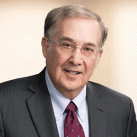
Louis and Harriet Ancel Professor of Law and Public Policy
- Constitutional law
- Federal courts
- Civil procedure
- Freedom of expression
Shanice Harris
Northwestern Media Relations
Northwestern faculty are available to comment on upcoming Supreme Court rulings expected to be announced in the coming weeks.
The Court may release opinions on presidential immunity, emergency room abortion and access to medications, the ability of social media companies to remove political posts and accounts, voting maps and what constitutes racial gerrymandering, accountability for the Opioid epidemic, and Trump administration tax cuts, among others.
Connect with faculty directly using the contact information below, or reach out to Shanice Harris or Media Relations for assistance.

Louis and Harriet Ancel Professor of Law and Public Policy

Harold Washington Professor of Law
Professor Daniel Rodriguez can also speak on the following cases:

Class of 1967 James B. Haddad Professor of Law
“The holdings in these cases will have significant effects on abortion access across the country,” Tuerkheimer said. “The opinions will also provide a glimpse of how the Court is likely to respond to further restrictions on reproductive autonomy, particularly those premised on the idea of fetal personhood.”

Harold Washington Professor of Law
Professor Daniel Rodriguez can also speak on the following cases:

Class of 1967 James B. Haddad Professor of Law
“The holdings in these cases will have significant effects on abortion access across the country,” Tuerkheimer said. “The opinions will also provide a glimpse of how the Court is likely to respond to further restrictions on reproductive autonomy, particularly those premised on the idea of fetal personhood.”

Elizabeth Froehling Horner Professor of Law
Associate Dean for International Initiatives
“The NetChoice cases will produce the Supreme Court’s first significant ‘internet economy’ opinion, forcing the Court to start to describe the first amendment rights of the newest generation of communications and content providers, the Internet platforms,” Speta said. “As such, this decision will begin to identify the limits, if any, on government regulation of the most valuable and socially impactful companies of our digital era.”
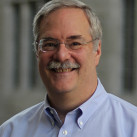
Professor of Bankruptcy Law and Practice and Edward Avery Harriman Lecturer in Law
Professor Markell filed an amicus brief in the case before the Court: Harrington v. Purdue Pharma.
“The Court will decide if Chapter 11 bankruptcy, designed for restructuring normal business debts, can be contorted to solve the opioid crisis and other mass tort problems,” Markell said. “This decision will shape the face of American reorganization for the foreseeable future.”
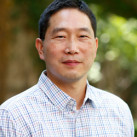
Class of 1940 Research Professor of Law
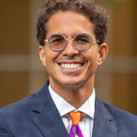
Professor of law and Associate Dean of Research and Intellectual Life

Harold Washington Professor of Law
Professor Daniel Rodriguez can also speak on the following cases:
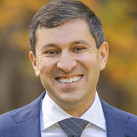
Professor of law
“At the Moore v. U.S. oral argument, a majority of the justices seemed inclined to uphold the tax at issue in the case, and thereby to avoid jeopardizing basic features of the income tax system,” Glogower said. “At the same time, some justices also expressed concern that a broad holding for the government could let Congress tax just about anything and call it an income tax and sought limiting principles in the definition of income. The balance the Courts strikes between these competing considerations will determine the outcome of the case and its implications for other possible tax reforms.”

Dean and Myra and James Bradwell Professor of Law